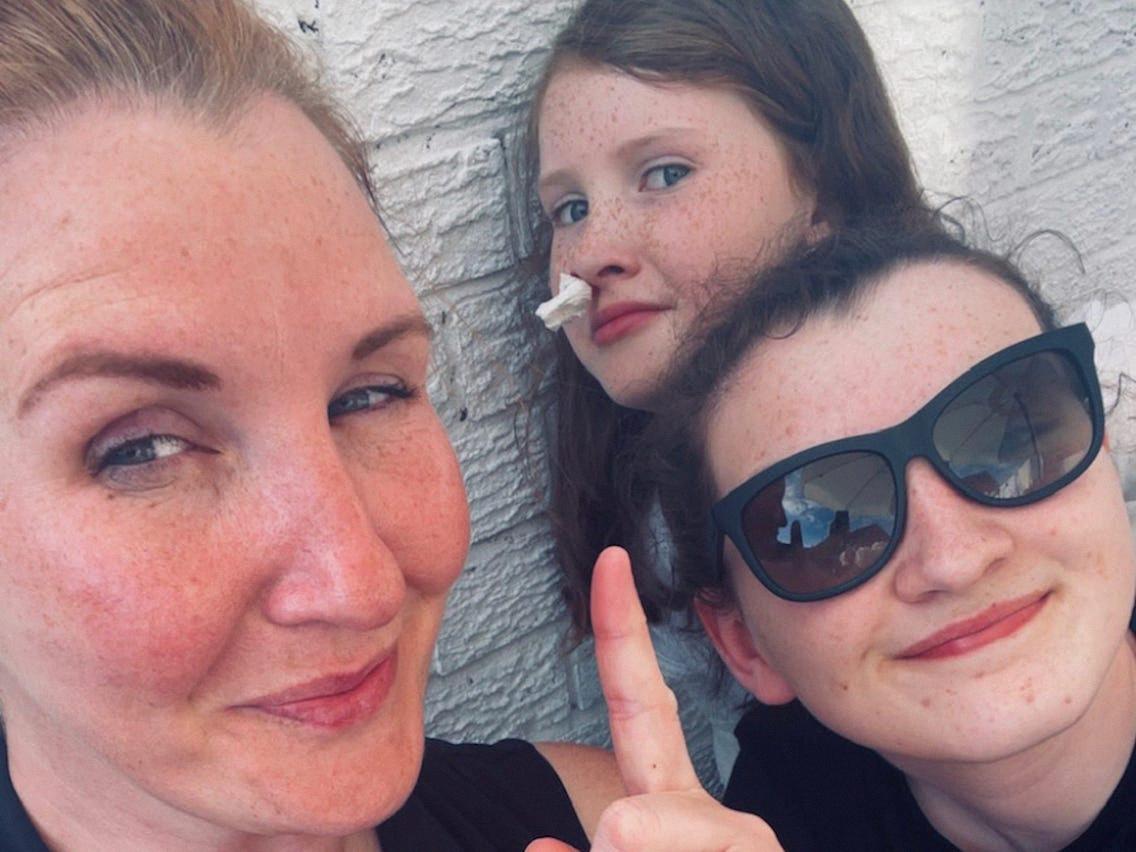Nosebleeds are a common occurrence and can range in severity from a minor inconvenience to a serous medical emergency. Although they’re rarely fatal, it’s important to be aware of the potential risks and know when to seek medical help.
Around 60% of people have had at least one nosebleed in their lifetime, and most of these are minor and easily treated at home. Generally, if you can stop the bleeding within 10-15 minutes, the nosebleed isn’t serious. However, more severe cases may require medical attention. In some cases, a person may need to take medication or have minor surgery to stop the bleeding.
Can you die from a nosebleed? Although it is very rare for someone to die from a nosebleed, it is possible in cases where the person experiences excessive blood loss or has an underlying condition that contributes to their risk of death from bleeding. For instance, people with high blood pressure or clotting disorders are at greater risk for fatal nosebleeds than those who do not have these conditions.
It’s important to recognize when an individual has a serious nosebleed that requires medical attention. If your nosebleed lasts longer than 10-15 minutes or if you’re swallowing large amounts of blood that make you vomit, seek emergency help immediately. Additionally, if you experience heavy bleeding as well as facial swelling or head pain/trauma, then go to the hospital right away as this could be indicative of a more serious injury requiring urgent care.
If you’ve had frequent or severe nosebleeds in the past few months but haven’t been evaluated by a doctor yet, make sure to schedule an appointment as soon as possible so that any underlying conditions can be identified and managed appropriately before they become life threatening.
Fatalities From Nosebleeds
No, someone did not die from a nosebleed. While it is possible for a nosebleed to be serious and potentially cause death, this is extremely rare. According to statistics, out of the 2.4 million deaths in the United States in 1999, only 4 were attributed to nosebleeds. This means that only 0.0002 percent of all deaths in the US were caused by nosebleeds. Furthermore, most people will experience a nosebleed at some point in their lifetime (about 60%), but very few of them are serious enough to require medical attention or pose any risk of death.

How Long is Considered an Excessive Nosebleed?
If a nosebleed lasts longer than 10 to 15 minutes, it is considered too long and you should seek medical attention. If the bleeding seems excessive or if you are swallowing a large amount of blood that makes you vomit, then it is important to go to the emergency room right away. It is best to be safe and seek medical attention if your nosebleed lasts any longer than 10 to 15 minutes.
The Severity of Nosebleeds
Yes, a nosebleed can be serious in some cases. Although most nosebleeds are not serious and can be managed with home care, frequent or heavy nosebleeds may indicate more serious health conditions, such as high blood pressure or a clotting disorder. If your nosebleeds are frequent or if they last longer than 20 minutes, it is important to see your doctor. Additionally, if the bleeding is coming from one nostril only, or if you have had recurrent nosebleeds for more than one month, you should also seek medical attention.
The Dangers of Excessive Nosebleeding
Yes, it is possible to lose too much blood from a nosebleed. Nosebleeds are common, and most can be managed at home. However, it is important to seek medical attention if you cannot stop the bleeding after 20 minutes of trying, or if the bleeding is heavy. You should also seek medical help immediately if you have had an injury to your head, face or nose. Blood loss from a nosebleed can be dangerous and can lead to complications if not treated quickly.
Causes of Severe Nosebleeds
Very heavy nosebleeds can be caused by a number of factors. The most common causes are trauma to the nose, such as a blow or fall, or an infection. Other causes include certain medications, high blood pressure, tumors in the nose or sinuses, allergic reactions, and clotting disorders. In some cases, the cause may not be known. If you experience a very heavy nosebleed that does not stop with the usual treatments of pinching your nostrils for 10-15 minutes and applying direct pressure to them, it is important to seek medical attention right away.

Source: onlymyhealth.com
When Is It Necessary to Seek Emergency Care for a Nosebleed?
You should go to the ER for a nosebleed if you are experiencing any of the following symptoms: feeling faint, dizzy or lightheaded; if the nosebleed is caused by severe trauma like a car accident; or if your nosebleed is accompanied by chest pain or tightness. Additionally, if the nosebleed does not stop after 15 minutes, you should seek medical attention.
Assessing the Severity of a Nosebleed
It depends on the individual, but generally speaking, a significant nosebleed is one that lasts more than 20 minutes or involves the loss of more than a cup of blood. If a nosebleed continues for this long or if you’re losing a lot of blood, it’s important to seek medical attention. In some cases, blood loss from a nosebleed can be life-threatening and can cause anemia.
When to Seek Medical Attention for a Nosebleed
If your nose is bleeding for more than 15 minutes, it’s important to seek medical attention as soon as possible. Nosebleeds can sometimes be a sign of an underlying medical condition that requires treatment. Additionally, if your nose bleed is the result of a blow to the face, head or nose, it’s critical to get evaluated by a physician to determine whether you have a broken nose or a facial or head fracture. If any of these scenarios apply, don’t wait—seek medical attention right away.
The Meaning of Bright Red Blood in a Nosebleed
Bright red blood from a nosebleed typically indicates that the bleeding is coming from the front part of your nose, whch is known as anterior nosebleeds. This is usually caused by a traumatic injury to your nose, such as a blow to the face or physical trauma from picking your nose. It can also be caused by cold and dry air irritating the delicate nasal tissue in your nostrils. Anterior nosebleeds are usually not serious and can be treated with simple first aid measures such as applying pressure to the area and tilting your head forward so that the blood drains out of your nose rather than down your throat.

Source: insider.com
What To Do When a Nosebleed Won’t Stop
If your nosebleed won’t stop, you should seek immediate medical attention. In the meantime, remain calm and try to stay still. Pinch the soft part of your nose just above the nostrils and apply firm pressure for 5 to 10 minutes without stopping. If after 10 minutes, your nosebleed is still not stopped or has slowed down significantly, seek medical help. At the hospital, a doctor may cauterize or seal off the bleeding vessel in your nose through a procedure called nasal cautery. This can help stop a persistent nosebleed.
The Effects of Stress on Nose Bleeding
Yes, stress can be a contributing factor to nosebleeds. When a person is under extreme levels of stress, their blood vessels can become fragile and more prone to breaking. This can cause the small capillaries in the lining of the nose to burst and cause a nosebleed. The best way to prevent this is to reduce stress levels through relaxation techniques such as deep breathing or meditation. Additionally, it is important to stay hydrated and avoid blowing or picking your nose too hard. If you experience frequent nosebleeds, it is best to consult your doctor for advice.
Do Nosebleeds Usually Have Clots?
Yes, nosebleeds should have clots. When a nosebleed occurs, the body’s natural response is to create a blood clot in order to stop the bleeding. This clot forms a plug in the opening of the blood vessel that was damaged, which helps prevent further bleeding. If the nosebleed continues, then it is likely that the clot will either come out or become dislodged and allow for further bleeding. If you are experiencing frequent nosebleeds, it is important to speak with your doctor to determine if there is an underlying condition or if any other treatments are necessary.
Causes of Nosebleeds in Females
Nosebleeds in women can be caused by a variety of things. These can include dryness in the nasal passage due to low humidity levels or cold temperatures, allergies and irritants, physical trauma to the nose, an underlying medical condition such as high blood pressure or a bleeding disorder, or excessive nose-blowing or use of nasal sprays. Seasonal colds and allergies may also cause irritation to the delicate passages in the nose which makes it easier for a blood vessel to break and cause a nosebleed. It is important to note that thee are many potential causes for nosebleeds and it is best to consult with your doctor if you experience frequent or severe episodes.

Conclusion
In conclusion, nosebleeds are common and are rarely serious. Most nosebleeds can be managed at home with simple first aid techniques such as pinching the bridge of the nose, tilting the head forward and applying a cold compress. However, if you experience frequent or heavy nosebleeds, if your nosebleed lasts longer than 10-15 minutes or if you are swallowing a large amount of blood that makes you vomit, then it is important to seek medical attention immediately. While nosebleeds are rarely fatal, they can be an indication of more serious health problems and should not be ignored.
